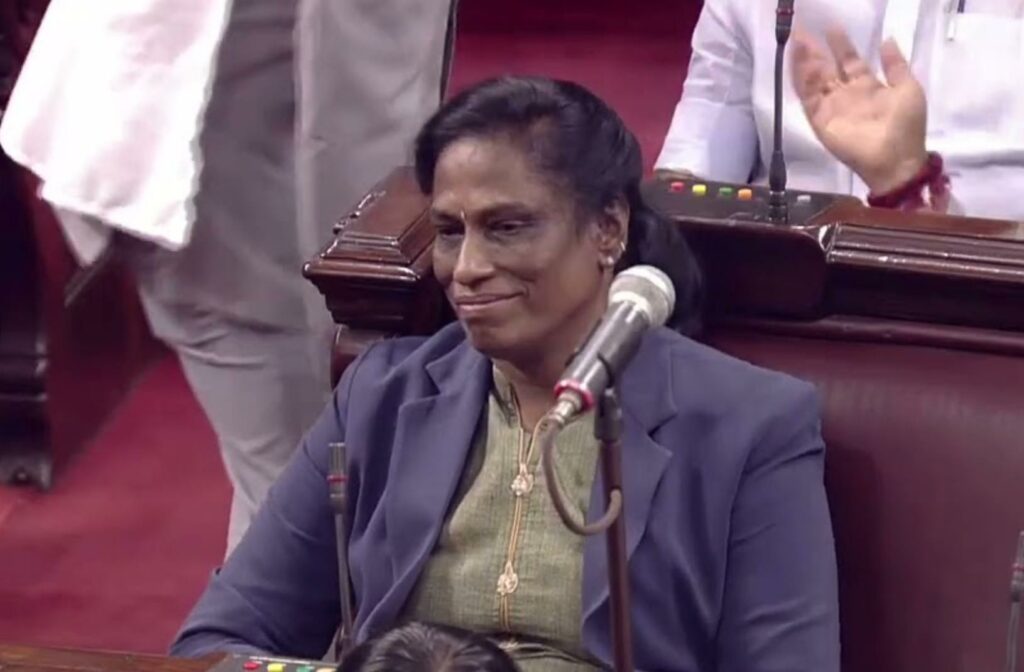India is planning to bid for the 2036 Olympics and Paralympics after achieving its best ever medal haul at the Hangzhou Asian Games. The country won a total of 107 medals, including 28 gold, surpassing its previous record of 70 medals in Jakarta 2018. The Indian Olympic Association (IOA) president P T Usha said that the time has come for India to host the mega event and showcase its sporting prowess to the world.
India’s remarkable feat at Hangzhou Asian Games
India’s 655-strong contingent delivered a spectacular performance at the 19th edition of the Asian Games, which concluded on Sunday. India secured medals in 22 sports, demonstrating its depth and diversity in various disciplines. Athletics was the most successful sport for India, with 29 medals, followed by shooting with 22 and archery with 10. India also won gold medals in kabaddi, cricket, badminton, wushu, equestrian and fencing.
Some of the notable achievements of Indian athletes at Hangzhou Asian Games are:
- Neeraj Chopra became the first Indian to win a gold medal in javelin throw at the Asian Games. He also broke his own national record with a throw of 88.06 metres.
- Satwiksairaj Rankireddy and Chirag Shetty created history by winning the first ever gold medal for India in badminton men’s doubles. They defeated the world number one pair from China in a thrilling final.
- Avinash Sable won two medals in athletics – a gold in men’s 3000m steeplechase and a silver in men’s 5000m. He also qualified for the Paris Olympics in both events.
- Jyothi Surekha Vennam and Ojas Deotale clinched gold medals in archery compound individual events. India also swept all the gold medals in archery compound team and mixed events.
- The Indian women’s kabaddi team won its seventh consecutive gold medal at the Asian Games, defeating Chinese Taipei in the final. The men’s team also reclaimed the gold medal after losing it in 2018.
- The Indian men’s cricket team won its first ever gold medal at the Asian Games, beating Bangladesh by five wickets in a nail-biting final.

India’s bid for 2036 Olympics and Paralympics
Buoyed by the record-breaking performance at Hangzhou Asian Games, IOA president P T Usha said that India should bid for the 2036 Olympics and Paralympics. She said that if the country’s athletes, coaches and national federations work hard, India can win double digit medals in the Paris Olympics. She also praised the government for its support and interest in sports.
“We should bid for the 2036 Olympics. I am sure India will win more medals in the Paris Olympics than in Tokyo, and then, with the medals to show, we can host the Olympics,” Usha said.
The government could formally express India’s interest to host the 2036 Olympics during the International Olympic Committee (IOC) session in Mumbai from October 15 to 17. The IOC has recently reformed its bidding process to make it more flexible and sustainable for potential hosts. The IOC’s Future Host Commission will identify and propose its preferred candidate to the Executive Board, which will then decide whether to recommend it to a vote at an IOC Session.
India has never hosted an Olympic Games before, though it has hosted other major sporting events such as the Commonwealth Games, Asian Games and Cricket World Cup. The country has also improved its performance at the Olympic level, winning six medals in London 2012 and seven medals in Tokyo 2020.
India’s challenges and opportunities as an Olympic host
If India succeeds in its bid for the 2036 Olympics, it will face several challenges and opportunities as an Olympic host. Some of the key aspects that India will have to consider are:
- Infrastructure: India will have to develop world-class infrastructure for hosting various sports events, as well as providing accommodation, transportation and security for athletes, officials and spectators. India will also have to ensure that the infrastructure is sustainable and aligned with its long-term development goals.
- Cost: Hosting an Olympic Games is an expensive affair, requiring huge investments from public and private sources. India will have to balance its budget and avoid cost overruns or corruption scandals that could tarnish its image or reputation.
- Legacy: Hosting an Olympic Games can have lasting impacts on a country’s social, economic and environmental aspects. India will have to ensure that the Games leave a positive legacy for its people, especially its youth, by promoting sports participation, education, health, culture and tourism.
- Competition: Hosting an Olympic Games is a highly competitive process, involving many factors such as political support, public opinion, international relations and media exposure. India will have to convince the IOC and the global community that it is capable and worthy of hosting the Games.
Hosting an Olympic Games is a dream for many countries, as it can showcase their culture, identity and achievements to the world. India has a rich and diverse sporting heritage, as well as a large and passionate population. If India can overcome its challenges and leverage its opportunities, it can host a successful and memorable Olympic Games in 2036.











